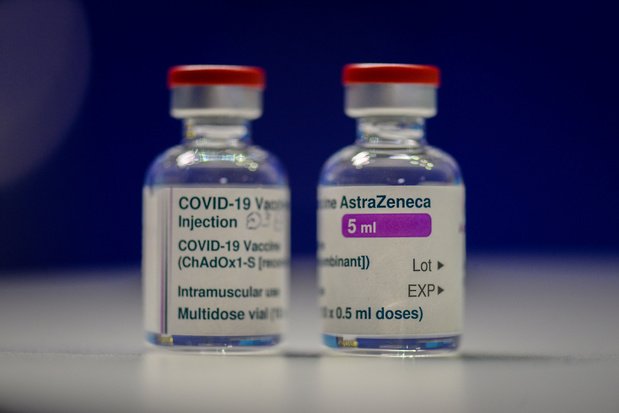In response to several questions from concerned people, health officials stressed that there is no need to be worried about AstraZeneca's Covid-19 vaccine.
Premature communication has led to considerable confusion and concern about the efficacy of the AstraZeneca vaccine, resulting in people thinking it does not work as well as Pfizer's or Moderna's vaccine, according to Belgium's Crisis Centre.
"People seem to believe this is an inferior vaccine, but we would like to stress that this is very much not the case," said virologist and interfederal Covid-19 spokesperson Steven Van Gucht.
In South Africa, for example, many are concerned that vaccinated people sometimes still develop mild or moderate symptoms when infected with the South African variant, even after vaccination, according to him.
"However, there is no indication that the vaccine does not protect against serious complaints," Van Gucht said, stressing that protection against serious symptoms is crucial, "because it prevents people from ending up in hospital, which is the main reason why we vaccinate."
Related News
- Belgium will not use AstraZeneca vaccine for over 55s, for now
- Vaccination is not a free pass, warns Van Gucht
- Belgium updates vaccination strategy due to AstraZeneca
Another element that led to people being concerned about AstraZeneca's efficacy, is that fact that a number of countries - including Belgium - only approved it for the age group of 18 to 55, and not the elderly.
"This is not because the vaccine does not work as well in the elderly, but only because there is still too little data from people over 55, or 65," Van Gucht said.
Belgium is currently awaiting the results of a large clinical trial in the United States, in which a great many older people are included. "Those results have yet to be announced, we do not have access to them yet," he added.
Additionally, Belgian experts are also waiting for the results of the major vaccination campaign in the United Kingdom, where elderly people are also getting the AstraZeneca vaccine.
"As soon as this data is available, the Superior Health Council can make a new evaluation," Van Gucht said, who also stressed that both the World Health Organisation (WHO) and the European Medicines Agency (EMA) in principle approved the vaccine for all ages.
Additionally, clinical studies on the AstraZeneca vaccine have shown that a full vaccination schedule - consisting of two doses 12 weeks apart - has an efficacy of 82% against all forms of Covid, including mild symptoms.
"Looking specifically at the efficacy of the vaccine against serious illness, hospitalisation and death, we even reach 100%. These are undeniably good results," Van Gucht stressed. "The AstraZeneca vaccine, like the Pfizer and Moderna vaccines, is therefore a good vaccine."
Some countries will only have the AstraZeneca vaccine, according to him. "In Belgium, we have the luxury of having 3 different vaccines at our disposal today."
Precisely because Belgium has the opportunity to reserve its Pfizer and Moderna vaccines for the very elderly, as their efficacy in this age group has already been proven, the authorities are holding off on the AstraZeneca one while they await more results.
"Reviewed data will now have to show whether the AstraZeneca vaccine works as well in older people as it does in young people," Van Gucht said. "As soon as we have that data, we can make adjustments quickly."
"An important goal of the vaccination campaign is to prevent the worst of the Covid-19 disease, meaning keeping people out of hospital and avoid deaths," he said. "All the vaccines that Belgium currently has are highly suitable for that."
Maïthé Chini
The Brussels Times

